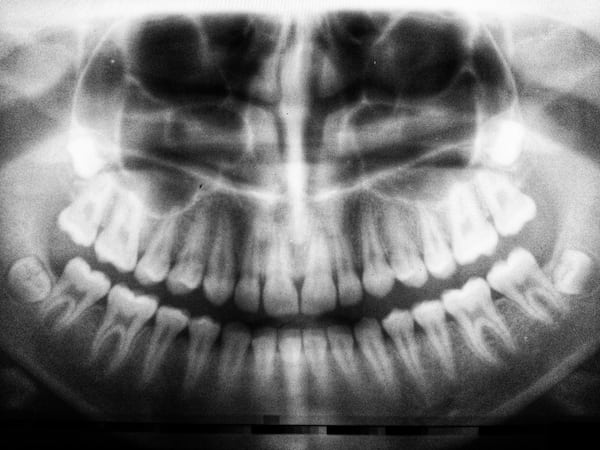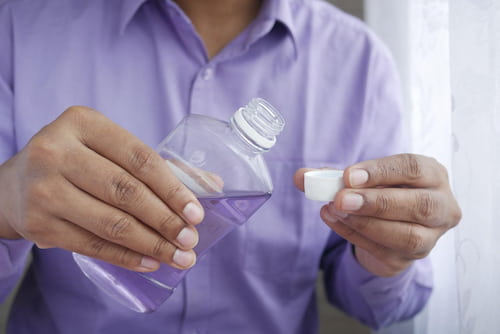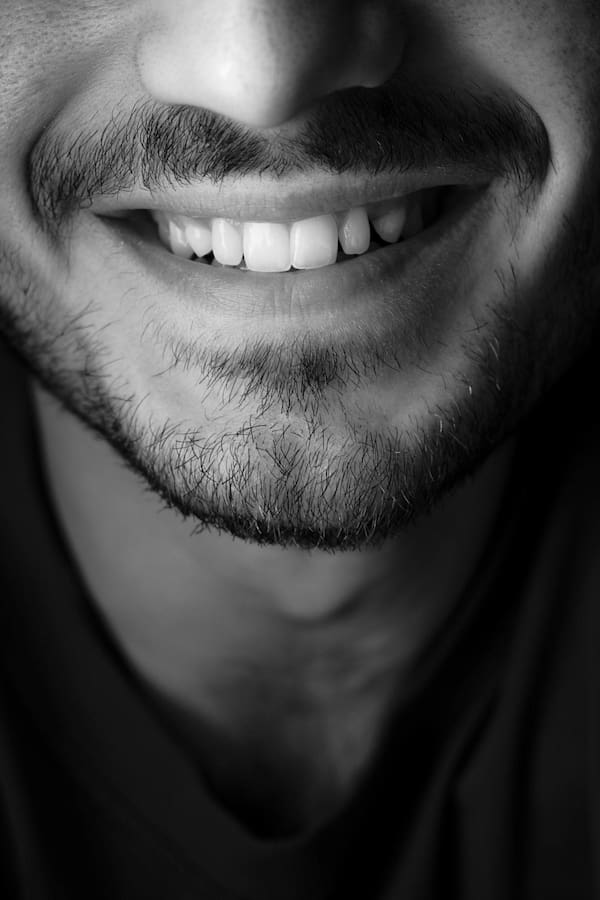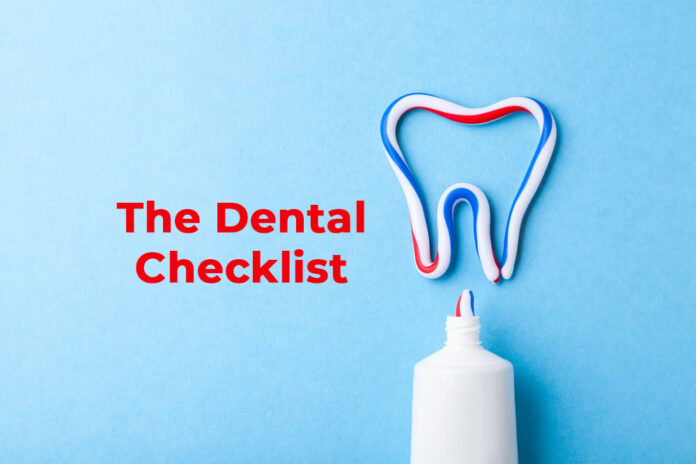Good oral health isn’t just important for aesthetic reasons, or to avoid the pain and financial cost associated with oral diseases.
There’s also a strong connection between poor oral health and other diseases, including heart disease, diabetes, and dementia.
Poor oral health has also been correlated with poor pregnancy outcomes, including premature birth and low birth weight.

For these reasons, strong daily oral hygiene practices are extremely important to overall health and wellness. Oftentimes, patients can achieve improved oral health and teeth straightening without braces, so there’s no reason to delay prioritizing the health of your mouth, teeth, and gums! Beyond seeing your dentist every six months, this short but crucial list of daily habits can improve your oral health and keep your smile beautiful.
Things You Can Do Every Day to Improve Your Oral Health
Brushing and Flossing — A Fine Balance
Daily brushing and flossing are the foundation for good oral care and are a great preventative measure against tooth decay or loss. That said, many Americans have become too aggressive about brushing after every meal, drink, or snack. Brushing your teeth more than twice a day, and especially just after a meal or drink, is not a good practice and can lead to abrasions on your teeth enamel and weakened teeth.
Advances in electric toothbrush technology have caused many to wonder if electric toothbrushes pose a similar hazard to teeth and gums from excessive use and force. The answer is “no.” Electric toothbrushes are a great option for brushing. Not only does the oscillating effect of the brush head do a better job at cleaning teeth, but their integrated timers ensure that you brush for two minutes, which is considered the minimum standard for brushing.
Surprisingly, manual toothbrushing is more likely to cause injury to enamel or gums when people are too forceful with the instrument; however, by keeping to a soft-bristle brush, and brushing gently and at a 45-degree angle to the teeth, manual toothbrushes can be very effective at removing plaque and keeping teeth clean without injury.
Brushing in an up-and-down motion using the right pressure and soft bristle toothbrushes will ensure a great set of pearly whites. This will also ensure that you don’t injure your teeth and gums because an injury like this can cause your teeth to become sensitive to hot and cold sensations, which could be irritating and uncomfortable. If this persists, you might need treatment from a root canal dentist to address the pain and sensitivity.
Brush or Scrape Your Tongue
The tongue holds an enormous amount of bacteria that can lead to tooth decay as well as cause bad breath. Make certain to include your tongue when you brush your teeth or use a tongue scraper designed for that purpose.
Most toothbrushes today have a built-in scraper at the back of the head so you won’t need another tool. Make sure to check this when you buy a new toothbrush.
Use an Antibacterial Mouthwash
Using an antibacterial mouthwash is the next most important thing that should be on everyone’s daily list. In fact, using antibacterial mouthwash up to twice per day is recommended. Bacteria are the catalysts for tooth decay, gum disease, and other health issues. Like flossing, an antibacterial mouthwash can be used safely after meals because there’s no abrasive contact with tooth enamel. Keeping a small, travel-sized bottle on hand in your desk drawer, purse, briefcase, or backpack for use during the day is a great idea for keeping your mouth free of harmful bacteria.

When choosing mouthwash, make sure to pick one that’s alcohol-free. Not only is alcohol harsh, but it can make the mouth dry and irritated. When your mouth gets too dry, it can cause bacteria to breed, which could become problematic for your mouth. You might be enticed to buy mouthwash with fancy flavors. Though it can freshen your breath, the sugar content of the mouthwash might even harm your teeth.
You might also want to steer clear of mouthwashes that are tinged with color, as this might stain your teeth. When shopping for mouthwashes, prioritize the ones that are cavity-fighting instead of just focusing on the breath-freshening properties of the mouth wash.
Keep to a Low-Sugar Diet
If weight gain and inflammation weren’t reason enough to rid your diet of unnecessary sugar, then you can add tooth decay and gum disease to the list. And by sugar, you should add in refined carbohydrates and starches that metabolize into sugar quickly. Understand, though, that it’s not the sugar itself that’s harmful, but its interaction with bacteria that causes acids to form on the teeth and gums.
Avoid Citrus Juice
Citrus juice contains citric acid. Citrus acid contributes to enamel erosion.
Manage Your Allergies
If you have a problem with allergies — seasonal or otherwise — then manage them as best you can. Significant congestion and postnasal drip can lead, once again, to heightened bacteria formation, sore throat, bad breath, tonsil stones, and oral infections. Know what your allergy triggers are and try to avoid them. When necessary, use allergy medications and even a nasal rinse with saline solution to clear out sinus passages to help manage post-nasal drip.
Drink Water — Especially if it’s Fluoridated
Some level of fluoridation is naturally occurring in water; however, since the 1940s, most U.S. communities have supplemented fluoride levels in water in order to fight tooth decay. About 75 percent of Americans live in communities with fluoridated water. At one point, water fluoridation was considered one of our greatest public health triumphs. While fluoridated water has become controversial in some communities, scientific data do not indicate any causal link between fluoride levels in drinking water and neurological impairment. Chances are good that your tap water is fluoridated, and assuming that it is otherwise safe to drink, then drinking tap water will most certainly be advantageous to your oral health.
Eat Naturally Fluoridated Foods
For those who are concerned about drinking tap water, another way to safely increase fluoridation consumption is by eating foods that naturally contain fluoride. Unfortunately, some of these foods are especially high in sugar and starches, but a short list of appropriate fluoridated foods includes grapes, wine, crab, shrimp, black tea, coffee, avocado, cherries, and strawberries.
Don’t Smoke
Beyond bad breath and the unsightly yellowing that nicotine causes on teeth, smoking also weakens the immune system, which otherwise helps protect and heal all bodily tissues, including those in the mouth.
Daily Reminder
When it comes to oral health, the old adage rings true: an ounce of prevention is truly worth a pound of cure. Cultivating these daily habits can go a long way toward keeping your teeth, gums, and body healthy and functioning optimally well into your old age and hopefully keep invasive and expensive dental procedures at bay.

New scientific advancements mean that even if your dentist asks you to go for braces, there are other more aesthetically pleasing options you can go for. The top option that you should be looking to explore is Invisalign. You can think of Invisalign as some kind of invisible braces that do the same work, but appear all natural.
If you do notice any concerning symptoms with your gums, teeth, or mouth, it’s important to see your oral health specialist as soon as possible.
Left untreated, minor infections can become serious problems, potentially leading to gum disease or tooth decay.
Even tooth misalignments that may seem merely aesthetic in nature can lead to more serious problems if left unresolved.
Follow these daily tips and keep to your regularly scheduled cleanings and evaluations for a smile that stays healthy and beautiful!
Author
Aaron Smith is an LA-based content strategist and consultant in support of STEM firms and medical practices. He covers industry developments and helps companies connect with clients. In his free time, Aaron enjoys swimming, swing dancing, and sci-fi novels.


